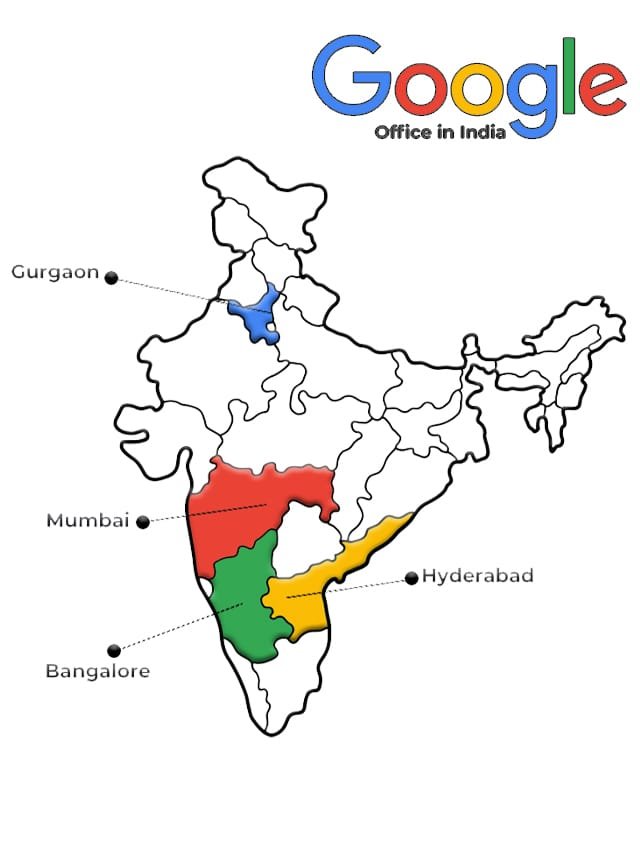Are you eager to kickstart your career in tech but unsure how to land that coveted web development internship? You’re not alone! With the rapid growth of the tech industry, web development internships have become a hot ticket for students and recent graduates. But how do you stand out in a sea of applicants? In this article, we’ll provide you with a step-by-step guide on how to secure a web development internship in 2024, including tips on essential skills, resume writing, and interview preparation.
What Are Web Development Internships?
Web development internships offer students hands-on experience in building and maintaining websites. These internships typically involve collaborating with seasoned developers, participating in projects, and gaining exposure to real-world challenges in the tech industry.
Why Pursue a Web Development Internship?
- Real-World Experience: Gain practical knowledge that can’t be learned in a classroom.
- Skill Development: Enhance your coding and problem-solving skills.
- Networking Opportunities: Build connections that could lead to future job opportunities.
- Resume Building: A web development internship on your resume can significantly enhance your employability.
Essential Web Developer Skills for 2024
To secure a web development internship, you need a solid foundation in key skills. Here’s a breakdown of essential web developer skills:
| Skill | Description |
|---|---|
| HTML/CSS | Fundamental for structuring and styling web pages. |
| JavaScript | Key for adding interactivity to websites. |
| Version Control | Familiarity with Git for code collaboration. |
| Responsive Design | Ensures websites function well on various devices. |
| Frameworks | Knowledge of frameworks like React, Angular, or Vue.js is beneficial. |
| Problem-Solving | Ability to troubleshoot and find solutions. |
| Communication | Essential for collaborating with team members. |
How to Get an Internship in Web Development: A Step-by-Step Guide
Step 1: Build a Strong Foundation
Start by learning the basics of web development. Consider enrolling in online courses, attending coding boot camps, or pursuing a degree in computer science. Websites like Coursera, Udacity, and Codecademy offer excellent resources.
Step 2: Create a Portfolio
A portfolio is crucial for showcasing your skills to potential employers. Here are some tips for creating an impressive portfolio:
- Include Projects: Showcase at least 3-5 projects that highlight your coding abilities. This could be personal projects, class assignments, or contributions to open-source projects.
- Use GitHub: Host your projects on GitHub to demonstrate your coding style and version control skills.
- Write Descriptions: For each project, include a brief description outlining your role, the technologies used, and the challenges you faced.
Step 3: Tailor Your Resume
Craft a resume that highlights your relevant skills and experiences. Here’s how to format it:
- Contact Information: Include your name, phone number, email, and LinkedIn profile.
- Professional Summary: Write a summary emphasizing your interest in web development and any relevant skills.
- Work Experience: List any internships, part-time jobs, or freelance work related to web development.
- Education: Include your degree(s), relevant coursework, and any certifications.
- Skills Section: List your technical skills, especially those relevant to the internship.
Resume Layout Tips
- Choose the Right Format: Opt for a chronological layout if you have relevant experience, a functional layout if you lack experience, or a combination layout if you have both.
- Keep It One Page: Aim for a concise resume that’s easy to read.
- Use Keywords: Incorporate keywords from the job description to pass through Applicant Tracking Systems (ATS).
Step 4: Network
Networking can significantly increase your chances of landing an internship. Here are some strategies:
- Attend Meetups and Conferences: Engage with local tech communities and participate in workshops or seminars.
- Connect on LinkedIn: Reach out to professionals in the field and express your interest in internships.
- Informational Interviews: Request short meetings with professionals to learn about their career paths and seek advice.
Step 5: Apply Strategically
When applying for internships, be selective:
- Research Companies: Look for companies that align with your interests and values.
- Customize Your Application: Tailor your cover letter and resume for each position, highlighting why you’re a good fit.
- Follow-up: If you don’t hear back after a week or two, consider sending a polite follow-up email to express your continued interest.
Preparing for Interviews
Once you land an interview, preparation is key. Here’s how to get ready:
- Study Common Interview Questions: Prepare answers for common web development interview questions, such as:
- Explain the difference between HTML and XHTML.
- How do you optimize a website for performance?
- Can you describe a challenging coding problem you solved?
- Technical Assessments: Be ready for coding tests or technical assessments. Practice coding problems on platforms like LeetCode or HackerRank.
- Ask Questions: Prepare insightful questions to ask the interviewer, showing your interest in the company and the role.
Frequently Asked Questions (FAQs)
What are web development internships?
Web development internships provide students and recent graduates with hands-on experience in developing and maintaining websites while working alongside experienced professionals.
How do I find web development internships?
You can find web development internships through job boards, company websites, networking events, and university career services.
What skills do I need for a web development internship?
Essential skills include HTML, CSS, JavaScript, version control (Git), responsive design, and problem-solving abilities.
How important is a portfolio for a web development internship?
A portfolio is crucial as it showcases your skills and projects to potential employers, giving them a tangible representation of your capabilities.
How can I make my resume stand out?
Tailor your resume to highlight relevant skills, use keywords from the job description, and keep it concise and well-structured.
Conclusion
Securing a web development internship in 2024 may seem daunting, but with the right skills, preparation, and perseverance, you can land that position! Remember to build a strong portfolio, tailor your resume, and actively network. As you embark on this journey, keep honing your skills and learning from every opportunity.
Thank you for reading! For more updates on internships, jobs, and courses, don’t forget to join CourseBhai on social media, subscribe to our push notifications, and sign up for our newsletters!





![Free NHRC Winter Internship Program for College Students [Stipend Rs. 12k Month with Certificate] Apply By 4 Nov 7 Free NHRC Winter Internship Program for College Students [Stipend Rs. 12k Month with Certificate] Apply By 4 Nov](https://coursebhai.com/wp-content/uploads/2025/10/Untitled-1200-x-628-px-89.png)







